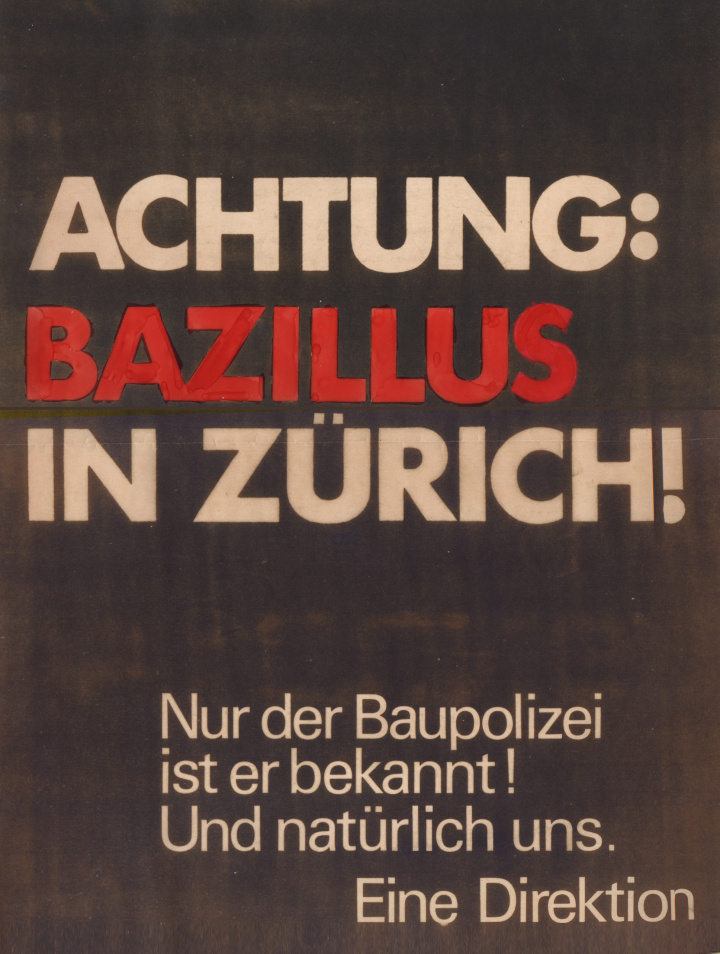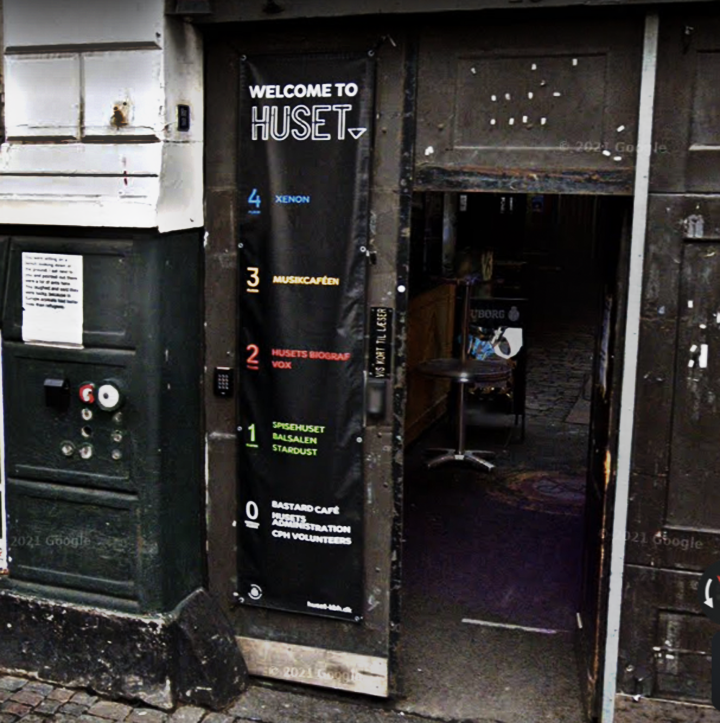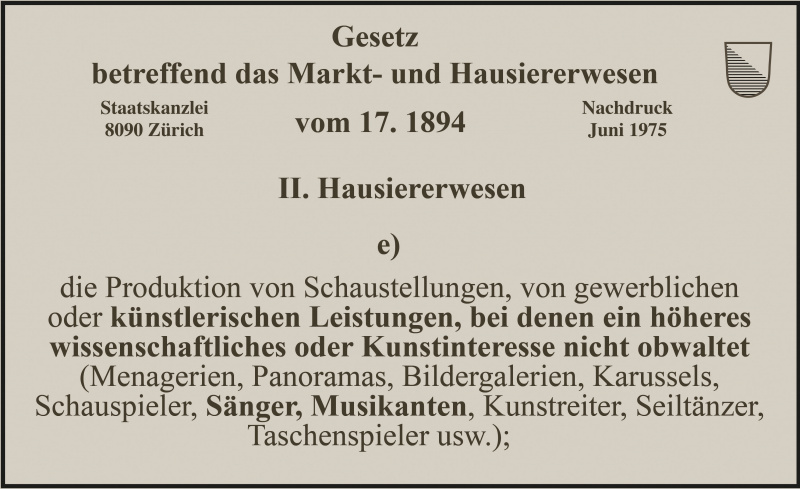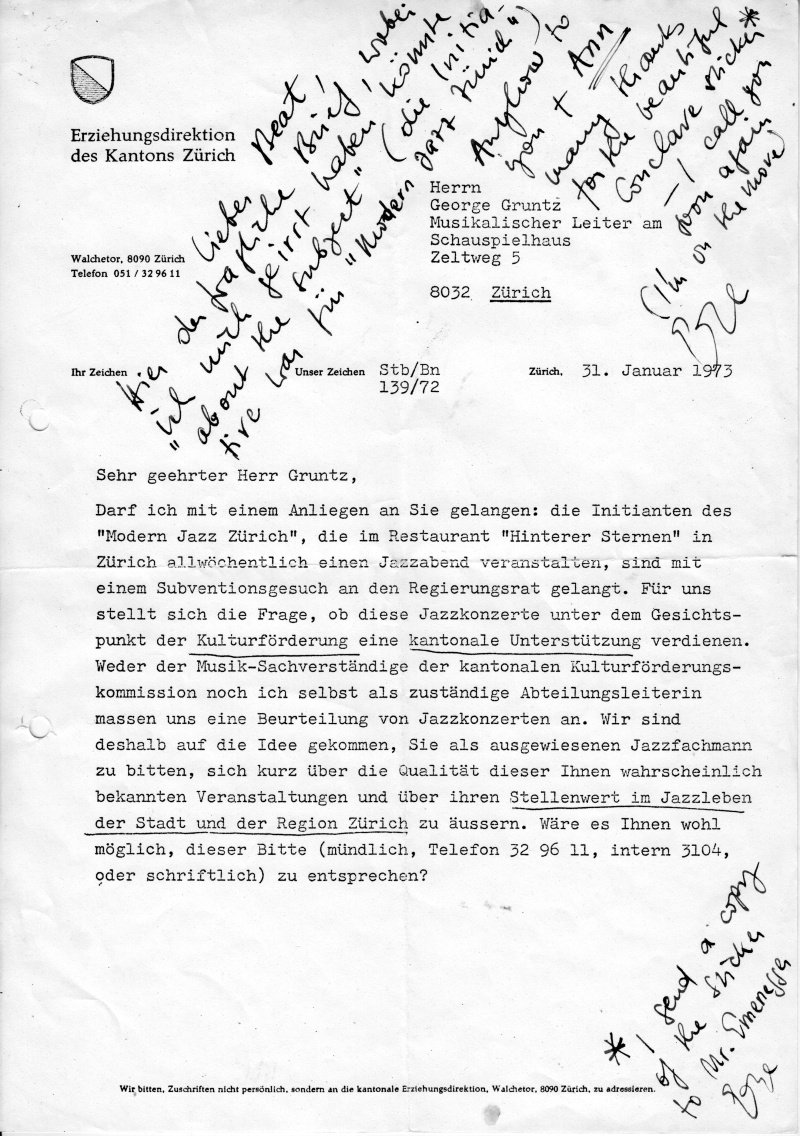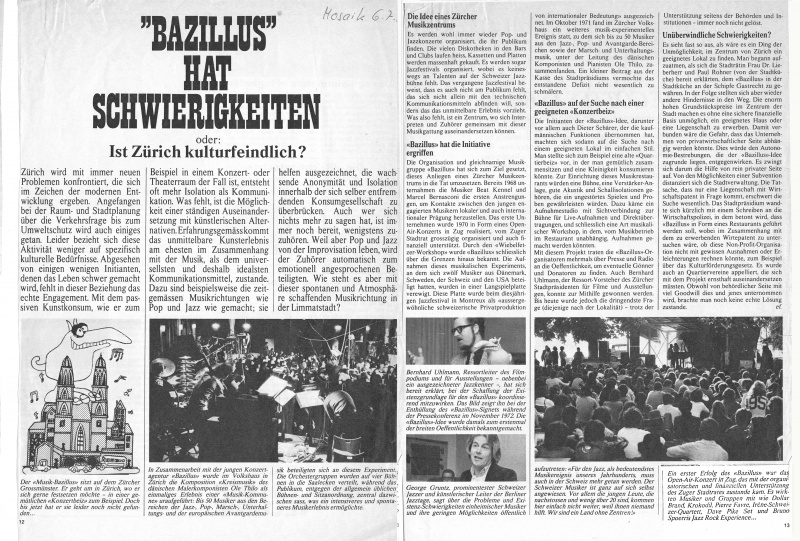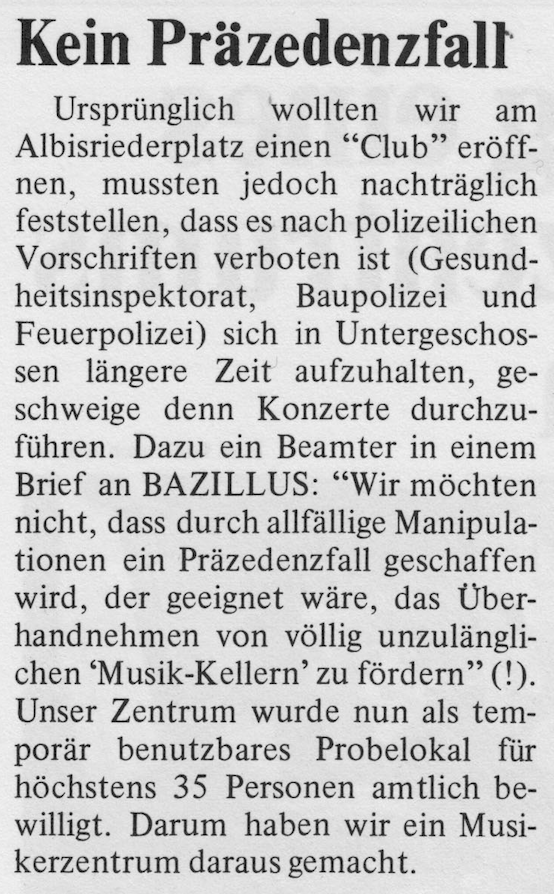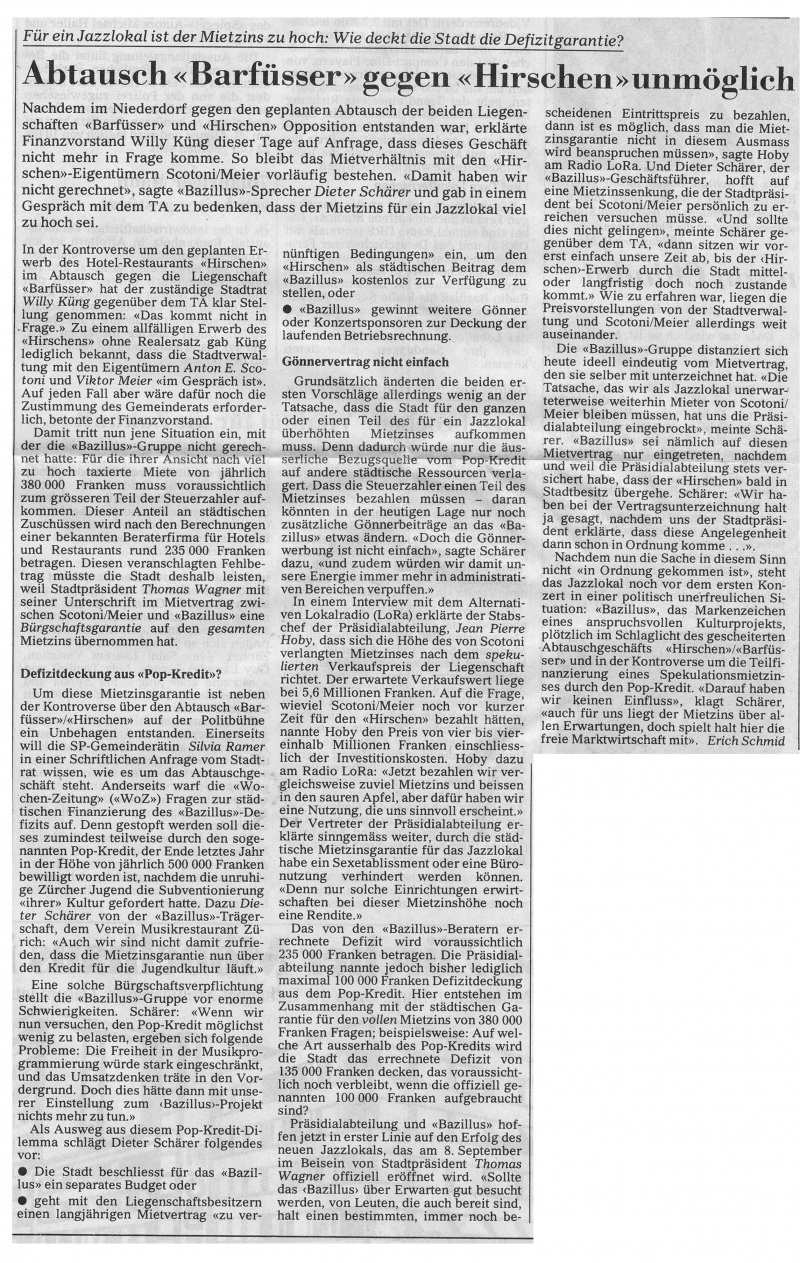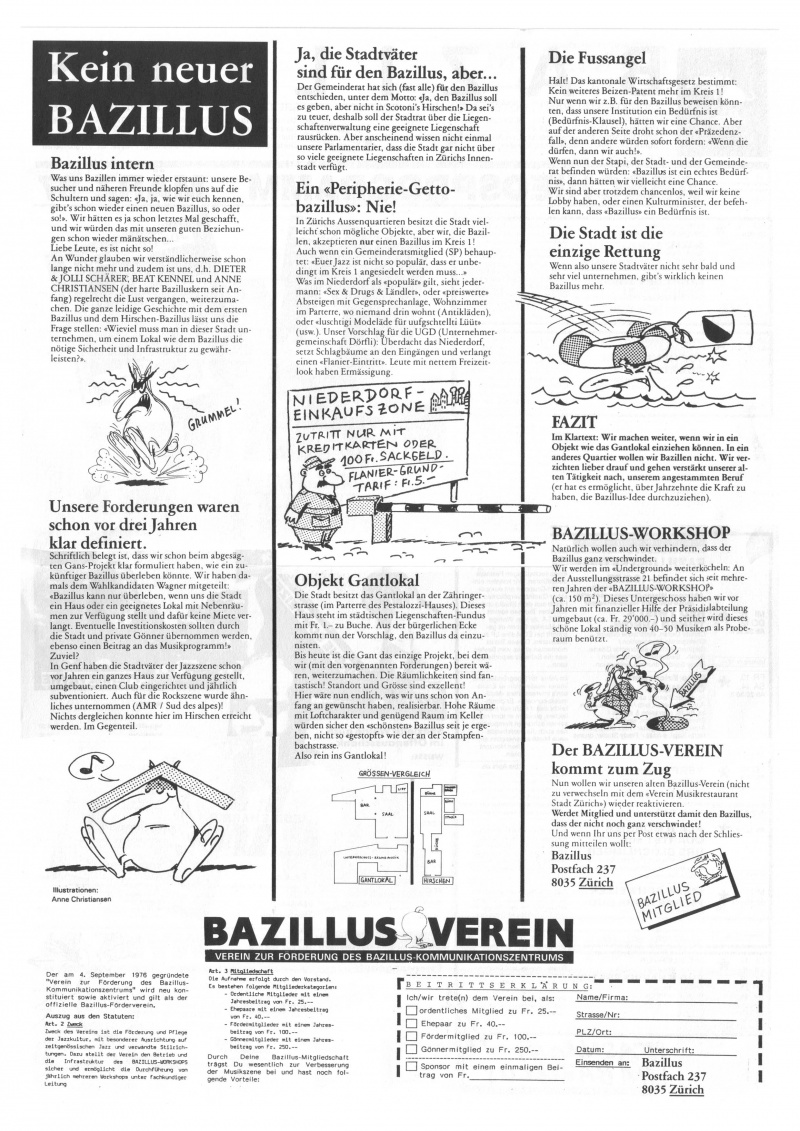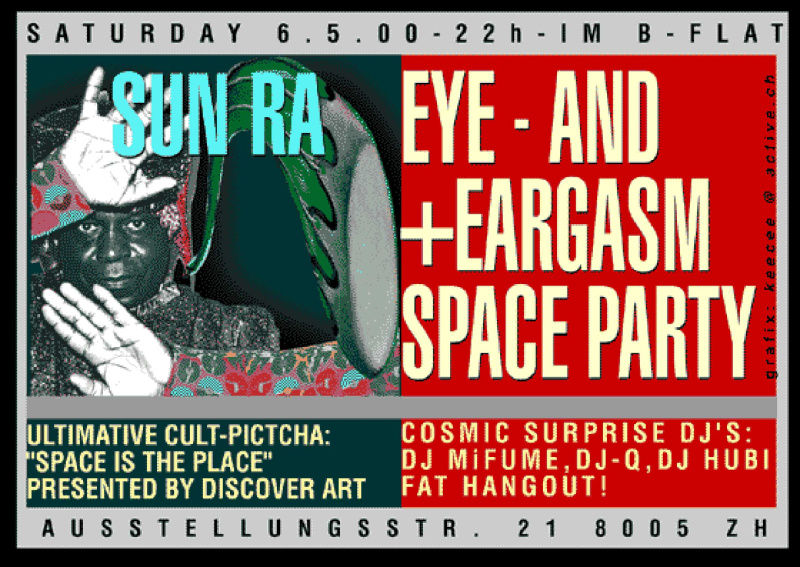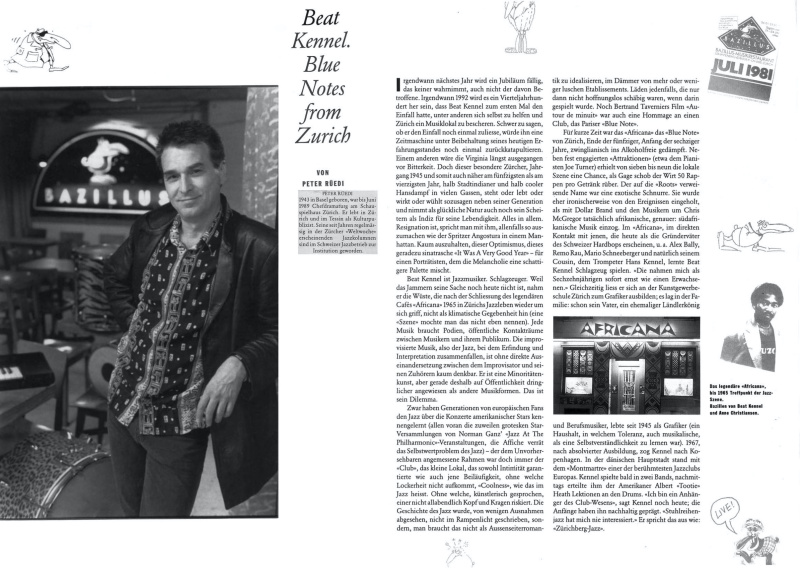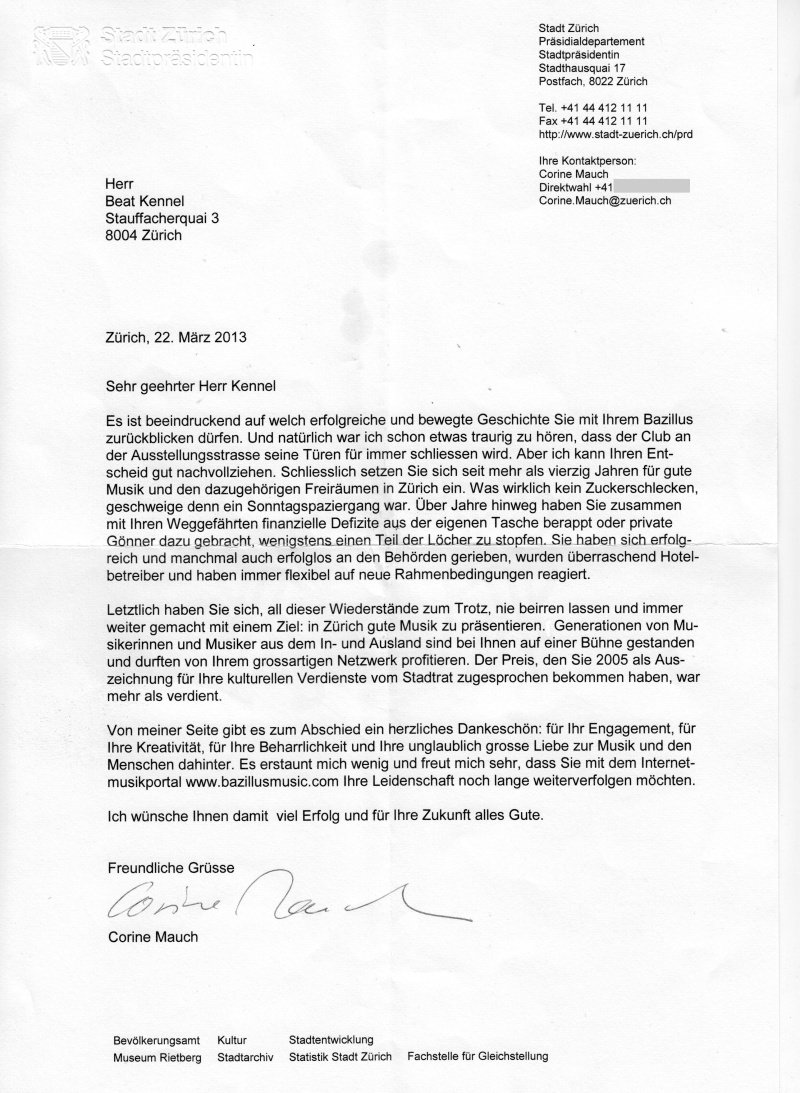Jonas C. Haefeli: At the behest of the economic police, only club members or guests accompanied by a member were actually allowed into the club. We solved this problem at the time by introducing a pro forma 24-hour membership, which allowed us to "cheat the authorities". At the end of 1967, the house was sold to the city of Zurich. Despite assurances to the contrary, the city then unexpectedly gave us notice of termination. The city then had the house demolished and a parking lot built on the property.
See also Stories > Plate 27
Inspiration in Copenhagen:
At the time, the Danish authorities were much further ahead of Zurich in terms of youth culture…
I first played 1968 in the student club in Copenhagen. It came across as an alternative place even back then and didn't look like a managed space. The Danes were already a tolerant people back then. Except for the members of the royal family, you are on a first-name basis all over Denmark! On the street, in the stores, with the authorities, the police, the politicians, TV, etc. How would that feel in Zurich?
1970: Huset Copenhagen (formerly Huset i Magstræde) is Denmark's first and largest cultural center with 5 stages. For five decades, Huset has shaped Copenhagen's underground and hosted a wide range of prominent Danish and international artists. Offering space to both the creative emerging class and professional artists in music, film, performing arts and spoken word, the house has been a venue for unique and original experiences since 1970.
Freetown «Christiania»1971:
Young people then occupied a large, former military facility, in the middle of the city of Copenhagen in 1971 and founded the "Freetown Christiania" on it. At first, this was a real challenge for the authorities and the electorate. Christiana still exists today. Everything has calmed down and become more well-behaved, as it always is. Also, the youth center "Huset", opened in 1973, in the middle of the city, also still exists.
See also Stories > Jazz in Copenhagen
The first, internal layout (still designed in Copenhagen by Beat) for a Bazillus poster shows the atmosphere in Zurich. I was informed at that time through my colleague Bernasconi by Jonas C. Haefeli that «Platte 27» had been torn down.

